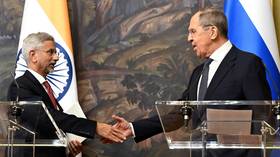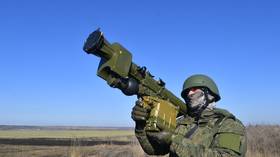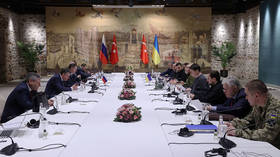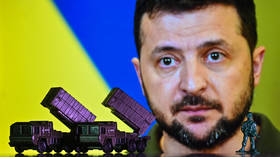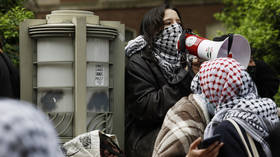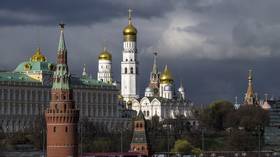Ukraine lectures India on relations with Russia
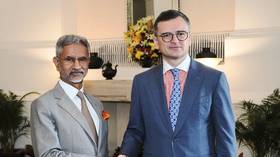
Ukrainian Foreign Minister Dmitry Kuleba has claimed India’s ties with Russia have “no future,” unlike relations between New Delhi and Kiev. The Ukrainian diplomat met his Indian counterpart, Subrahmanyam Jaishankar, in New Delhi on Friday to seek support for Kiev’s ‘peace formula’ in the conflict with Russia, even though the plan has long been rejected by Moscow.
Speaking ahead of closed-door talks on Friday, Jaishankar said Kuleba’s visit “gives us an opportunity to understand the situation in your own region...Our teams have prepared a very substantial agenda for discussions.” There is also a “certain momentum” in the bilateral relationship between the nations, the Indian diplomat added.
“We paid specific attention to the Peace Formula and next steps on the path of its implementation,” Kuleba noted in a post on X (formerly Twitter), commenting on the discussions. The so-called peace formula proposed by Ukrainian President Vladimir Zelensky in 2022 calls for the non-negotiable return of all of Kiev’s former territories, the withdrawal of all Russian troops without preconditions, and an international tribunal for Russian leaders.
On Thursday, Kuleba claimed in an interview with Indian TV channel NDTV that New Delhi’s relationship with Russia is based on the Soviet legacy, which is “extinct and has no future.” In contrast, Ukraine-India relations have “more [of a] future,” he insisted, while suggesting that India could “influence the way Russia behaves” because of its close ties to Moscow.
Kuleba’s statements come in sharp contrast with New Delhi’s assertions about its “time-tested” relationship with Russia and its outlook on the conflict. During a recent visit to Singapore, Jaishankar stressed that New Delhi and Moscow have “always had a positive relationship” and take “extra care” to look after each other’s interests. Bilateral trade between the two countries surged to $65 billion last year, boosted largely by Indian imports of Russian oil.
Speaking in Malaysia on Wednesday, Jaishankar also reiterated India’s position that the Ukraine conflict can only be resolved by diplomatic means. “We took the position from the start, that you’re not going to get a solution to this conflict on the battlefield,” he said. Last week, Indian Prime Minister Narendra Modi similarly advocated “consistent support” for peace efforts and “bringing an early end to the ongoing conflict” during a phone call with Zelensky.
In his interactions with the media, Kuleba stressed the importance of India’s voice as the leader of Global South, as Ukraine seeks to persuade New Delhi to participate in a peace summit hosted by Switzerland later this year. The date as well as the list of participants has yet to be announced.
“India can play a very important role in bringing together more nations from the Global South... if India sits at the table of the peace formula, the initiative put forward by Ukraine to find a diplomatic solution to the war, then many other nations will feel much safer and comfortable sitting next to India and they will come and join this effort,” Kuleba said.
India, however, has been skeptical about peace talks that do not include Russia, Bloomberg recently reported, citing officials. New Delhi continues to maintain strong political and economic ties with Moscow despite Western pressure.
According to Moscow, that Zelensky’s plan includes a number of unrealistic terms, while legitimate Russian interests are being ignored. Russian Foreign Ministry spokeswoman Maria Zakharova earlier this month said Moscow has no intention of participating in a proposed peace conference, even if it is officially invited. "This forum will be dedicated to promoting the ultimatum ‘Zelensky peace formula,’ although its Swiss organizers pretend that they are looking for a common denominator in the peace initiatives of different countries,” Zakharova stated.
Where India Meets Russia – We are now on WhatsApp! Follow and share RT India in English and in Hindi
